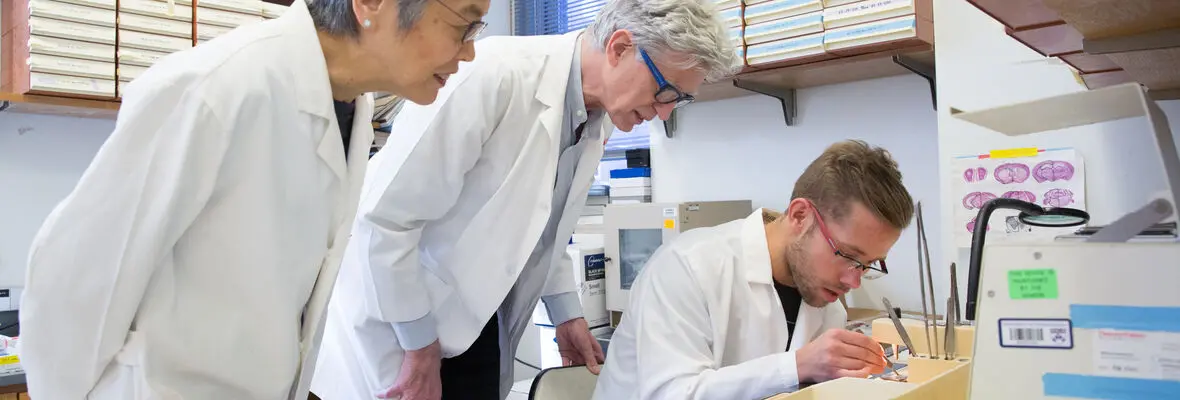Related Funding Opportunities
1132Funding Opportunities
ADRC Developmental Projects
Each year, the University of Pennsylvania (Penn) Alzheimer’s Disease Research Center (ADRC) will fund up to two developmental projects, pending availability of funds, to support basic, translational or clinical research within the theme of heterogeneity in the Alzheimer’s Disease (AD) continuum.
Special emphasis will be given to projects that address the theme of AD heterogeneity, but consideration will also be given for projects that are more novel, offer an area of research underrepresented in the ADRC or at Penn, and are transdisciplinary, expanding the breadth of collaborations.


